CELEBRATING CULTURE AT AN ALL NIGHT FESTIVAL
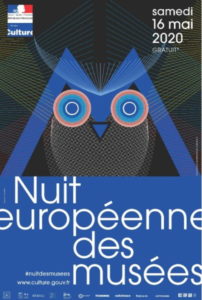
The idea of celebrating culture with an annual all-night event that brings together all ages and tastes, started back in 1982 and has since become a world-wide phenomenon. In France, the Fête de la Musique is held on 21 June every year, and La Nuit des Musées falls around the middle of May. Events are free, hugely popular, with a festive atmosphere and above all, great fun.
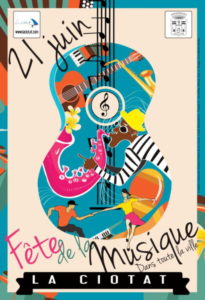
In October 1981 French Minister of Culture, Jack Lang, appointed Maurice Fleuret director of music and dance, with a brief to develop a nation-wide program based on the idea of bringing together all genres of music. In his words, “music will be everywhere and the concert nowhere.” He realised that although over 5 million people played a musical instrument, traditional musical events attracted only a minority.
The vision was to create a popular event that allowed all musicians to express themselves and become known to as wide an audience as possible. The stipulation was that all events were to be free to the public and musicians would donate their performance time. The first Fête de la Musique was launched on 21 June 1982, the symbolic day of the summer solstice, the longest day of the year in the northern hemisphere.
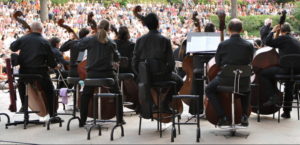
In France the Fête is a celebration that takes place across the country, in cities, towns and villages—it’s one the few times in the year where the authorities waive normal licensing laws, allowing the revelry to continue as long as there are people with the stamina to enjoy it.
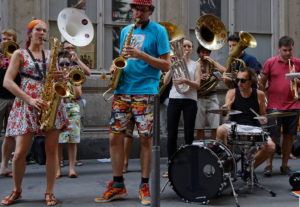
A few posters were printed and distributed, with an appeal for people to participate. The result surpassed all expectations. Thousands of individuals and groups took to the streets, squares, public gardens and railway stations to perform, while thousands of people wandered the streets well into the early hours of the next day, all in an enthusiastic, good-natured atmosphere to enjoy music in all its forms and variations. It was as though the wider community was just waiting for such a movement of musical awareness to spring forth and awaken the spontaneous impulse of joyful exuberance through the celebration of music.
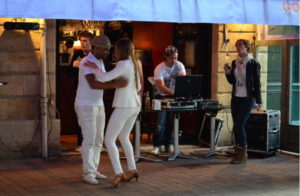
The union of professional musicians and performers, keen supporters of the idea, were overwhelmed by all the attention given to the great variety of music, ranging from rock, jazz, classical, song, and traditional music. The world of performance has come out of the concert halls and other traditional venues, and for one night is handed over to the amateur entertaining anyone and everyone who cares to stop, listen and enjoy.
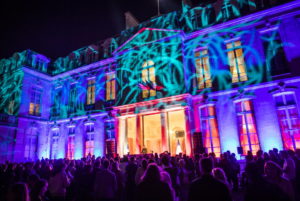
In Paris, almost every street corner has its bands, groups of classical musicians or singers, while stages spring up all over the city, in particular in the main squares and parks such as the Jardin des Tuileries, Parc de la Villette, the Petit Palais, the Institut do Monde Arabe, the Louvre forecourt, at the foot of the Eiffel Tower, Jardin du Luxembourg, Place de la Bastille, the forecourts of the Hotel de Ville and the Invalides, some of the larger metro stations, and of course, along the banks of the Seine.
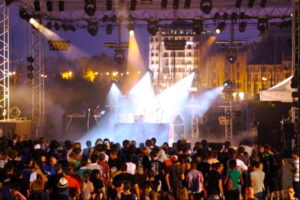
In less than ten years, the concept of the Fête de la Musique has spread to over 85 countries across 5 continents, where it’s more commonly referred to as World Music Day. Each year, the European Parliament declares a theme, such as ‘music without borders’, ‘women musicians and composers’, ‘music from films’, ‘music for the voice’ etc.
In every participating country there has been a revival of ancient and traditional music, all forms of classical genres, a veritable explosion of world music, a surge in rap, techno, urban music, as well as a development of choirs singing an extraordinary range and variety of music.
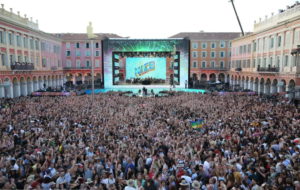
The Fête de la Musique has gone into prisons, brightened the lives of patients and hospital staff, brought music to more schools, and established valuable links between the cities, the peripheries and rural communities. The work of individuals and groups is being recognised for the enormous value they contribute to the entire community. The Fête promotes visibility and access to cultural and artistic expression, and has proved its longevity by its ability to evolve with each succeeding year. In this collaboration between the Ministry of Culture and the public, and for the benefit of the public, the world of music continues to blossom and spread in the public awareness and across public spaces.
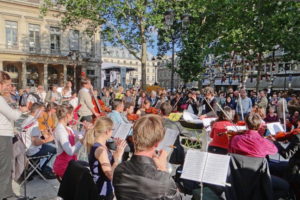
The coronavirus pandemic has hit the music industry hard across the world. Some 150,000 concerts in France alone have been cancelled this year, depriving musicians and concert organisers of their main source of income. Overall, the industry has so far lost €4 billion euros in revenue. But in the face of such challenging times, there are many who see the importance in somehow keeping the music going, and especially free events such as the Fête, as a reminder of just how important music is to society. During the lockdown, many a musician has lifted their neighbours’ spirits by performing on balconies and rooftops, especially in the big cities.
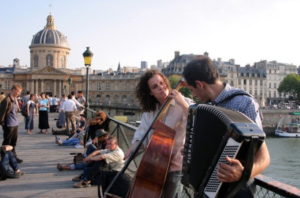
The Fête de la Musique did manage to go ahead on 21 June this year in a very limited form. The public numbers at gatherings were limited to 10 people resulting in fewer impromptu sessions, while the big set-piece extravaganzas were few and far between. There have been a huge number of online, “virtual” concerts, while French public radio France Inter hosted a full day of live concerts from performers performing in venues without audiences.
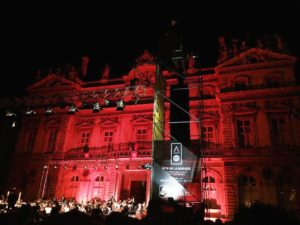
Small concerts also took place in hospitals across the country to thank health workers and their families for the efforts and sacrifices during the worst of the pandemic. Plans are already underway for a return of the Fête de la Musique in 2021 with an exciting, full program of performers, events and venues.
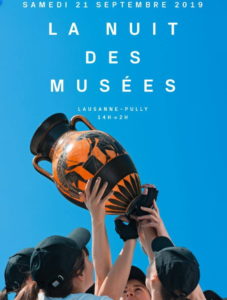
La Nuit des Musées falls every year on the third Saturday in May (Ascension Day). Organised by the Ministry of Culture and Communication, with the support of UNESCO, the Council of Europe, ICOM and numerous institutional and media groups the event was established in 2005, whereby French museums open their doors to visitors, stay open until at least midnight, with 98% of them free of charge.
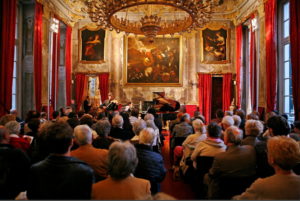
It’s now one of the most anticipated events of the season in Paris and throughout France, and has spread into some thirty European countries.
In 2019 more than 3,200 museums across Europe, including 1,200 in France, welcomed over 2 million people. The event enabled 805 classes and 360 museums in France to develop projects that were aimed at schools and families.
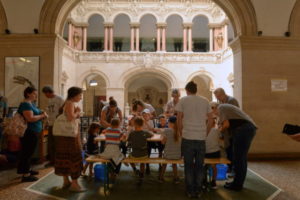
Due to coronavirus, this year the sixteenth edition of the event has been postponed to Saturday 14 November across France. On the menu there’ll be special exhibitions, shows, workshops, art trails, films and special entertainment at different venues, making it both friendly and fun. Other cities in Europe have either cancelled the event entirely or postponed it until later this year—Geneva, for example, has cancelled for this year, whereas Prague has rescheduled it to 10 October and Amsterdam will hold their Museum Night on 07 November. Brussels had initially postponed the event until 03 October but has recently announced that they’ve cancelled it entirely for this year.
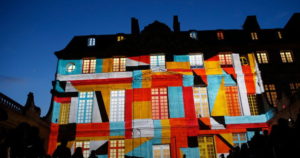
In Paris, all the big museums and galleries participate every year including the Louvre, Musée des Arts Decoratifs, Grand and Petit Palais, Musée des Arts et Metiers, Quai Branly, Musée d’Orsay and Centre Pompidou. Aside from visiting these big, obvious venues, this event is a great opportunity to visit museums and galleries that you might not have visited for a long time, or perhaps never been to before. Each year, special events are scheduled for this special night, for example in 2017 the Musée d’Orsay celebrated 120 years of cinema with a giant screen in the forecourt showing famous films; another year, the Philharmonie de Paris offered a contemporary music program celebrating the life of Pierre Boulez, while the Musée Picasso had a specially commissioned dance performance another year.
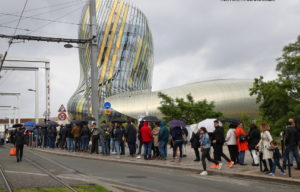
Typically, more than 150 Parisian museums participate and offer free entry. This year will likely see some reduction in the number of participating museums and galleries, but the majority have, so far, agreed to the re-scheduled date.
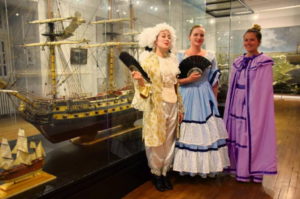
The enormous popularity of these events is evidence, if such was needed, of the important place that culture has in the lives of a country’s citizens. It goes beyond mere novelty value or the chance to have a night out for free. Nor are cultural pursuits restricted to an educated elite minority. In France in particular, a typical view is that all aspects of their culture is not only a right, but an obligation to safeguard, and is imbedded into the DNA that defines them as French.
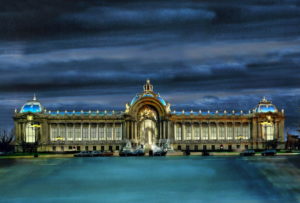
Culture and the arts in France are sacrosanct, and kept afloat by massive state initiatives and financial backing. Film-maker Jean-Luc Godard once remarked that “In France, culture and civilisation is state policy. Culture is seen as a kind of state sanctuary, which means cuts like getting rid of the (UK) Film Council would be unthinkable in France. People would take to the streets.”
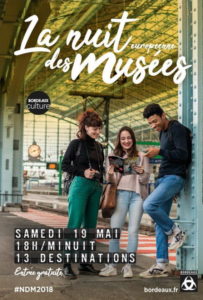
The arts have long played an important role in French culture, with a heritage dating back to the 25,000 year old cave paintings, the enormous amount of great works of architecture from almost every century scattered throughout the country, through to the great art movements and musical developments of the 19th and 20th centuries. Cultural literacy means that a deep appreciation and respect for the arts is common throughout France. Children are taught at a young age to appreciate artistry and that quality work (such as art, music or cuisine) may take time to produce. Such values stay with them for life.
When you’re planning your next visit to France, check your dates to see if you can join the happy throngs that will be out enjoying some of the great public cultural events of the year.
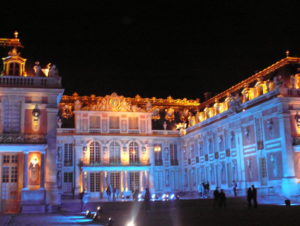


Leave a Reply